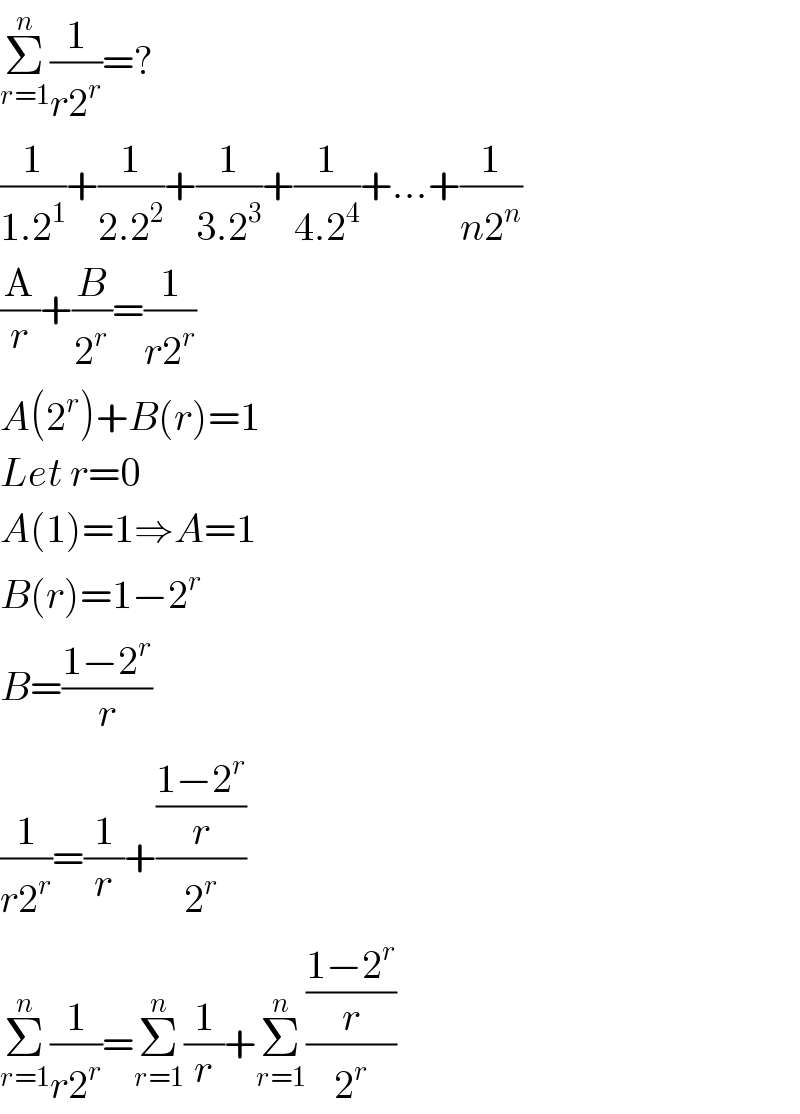Question Number 3682 by Yozzii last updated on 19/Dec/15

Commented by RasheedSindhi last updated on 19/Dec/15

Commented by Yozzii last updated on 19/Dec/15

Commented by Rasheed Soomro last updated on 19/Dec/15

Commented by 123456 last updated on 19/Dec/15

Commented by prakash jain last updated on 19/Dec/15

Commented by prakash jain last updated on 19/Dec/15

